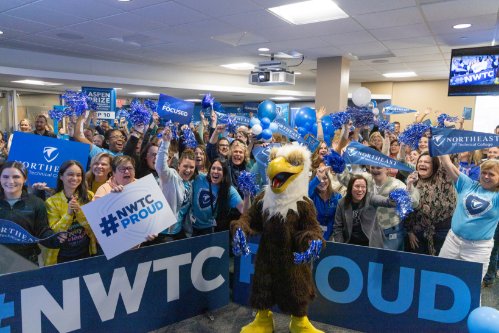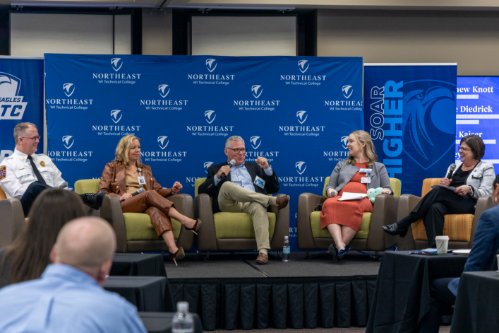Students from areas across the state and nation will present their findings at the Tiny Earth in Titletown research symposium in the Lambeau Field Atrium on Monday, December 11, 2023 from 5 to 7:30 p.m. The event will showcase the collaborative and innovative efforts of students across the state, working together to mitigate the global public health crisis of antibiotic resistance. Registration for this community-based symposium is free and open to the public.
This collaborative event is hosted by a committee of Tiny Earth Instructors at the University of Wisconsin-Green Bay, Northeast Wisconsin Technical College, College of Menominee Nation, and St. Norbert College. The keynote speaker is Dr. Ashok Rai, CEO and President of Prevea Health. Given his leadership within the Wisconsin healthcare community, Dr. Ashok Rai will address the importance of antibiotics, innovation in the space of research, and how we can be good stewards of antibiotic usage as a community.
Wisconsin students, including UW-Green Bay, NWTC, College of Menominee Nation, St. Norbert College, Green Bay West High School and more, join 14,000 other students from 300 other college and universities across 47 states and 30 countries, in some version of the Tiny Earth course. While uncovering new antibiotics is the end-goal, the discoveries made along the way are worth the effort. The course provides students of all backgrounds with the opportunity for original thinking and scientific exploration, inspiring the next generation of scientists and healthcare professionals.
All people of all traditions and backgrounds have a vested interest in this global emergency. The partnership of students, educators, institutions of higher education and businesses throughout the region highlight the value of higher education and collaboration in service to all communities as showcased by student research at this free community event in popular Lambeau Field.
UW-Green Bay Biology Prof. Brian Merkel, teacher of the course at UW-Green Bay and chair of the event, says the symposium is important on so many levels. “It’s a great opportunity to showcase the value of partnerships to mitigate large problems to a wide audience. For my part, Tiny Earth represents the realm of what is possible when innovative partnerships emerge for the greater good. The symposium wholly reflects the value of collaboration and service.”
Students get their own soil sample to test. They isolate bacteria and conduct gene sequence analysis. “The students realize they are part of something that’s bigger than themselves and they’re contributing to an international effort,” says Merkel. “This goes beyond a celebration of research. This is a visionary idea to help our students get excited about STEM careers while building an international network.”
“Many college students don’t get to participate in real life research cases, and this event allows students the experience to address and present on a worldwide issue,” said Angelo Kolokithas, NWTC program director of biology. “This is a great chance for the community to see what is happening within education to address a problem that impacts everyone; antibiotic resistance. The students also get a chance to educate the community on what we can all do to help fight this health crisis.”
Tiny Earth is a global network of educators who teach a course-based undergraduate research experience (CURE), a form of active learning that offers a scalable way for all students to obtain research experience in college, thereby leveling the playing field and closing the gap for students from historically excluded communities. The course provides students with the opportunity for original thinking and scientific discovery of new antibiotics to address the world crisis of antibiotic resistance, thereby capturing the very aspects of science that inspire students to pursue STEM careers. Students are inspired not just by the chance to do authentic research, but to be a part of a global effort addressing a looming global health crisis.



